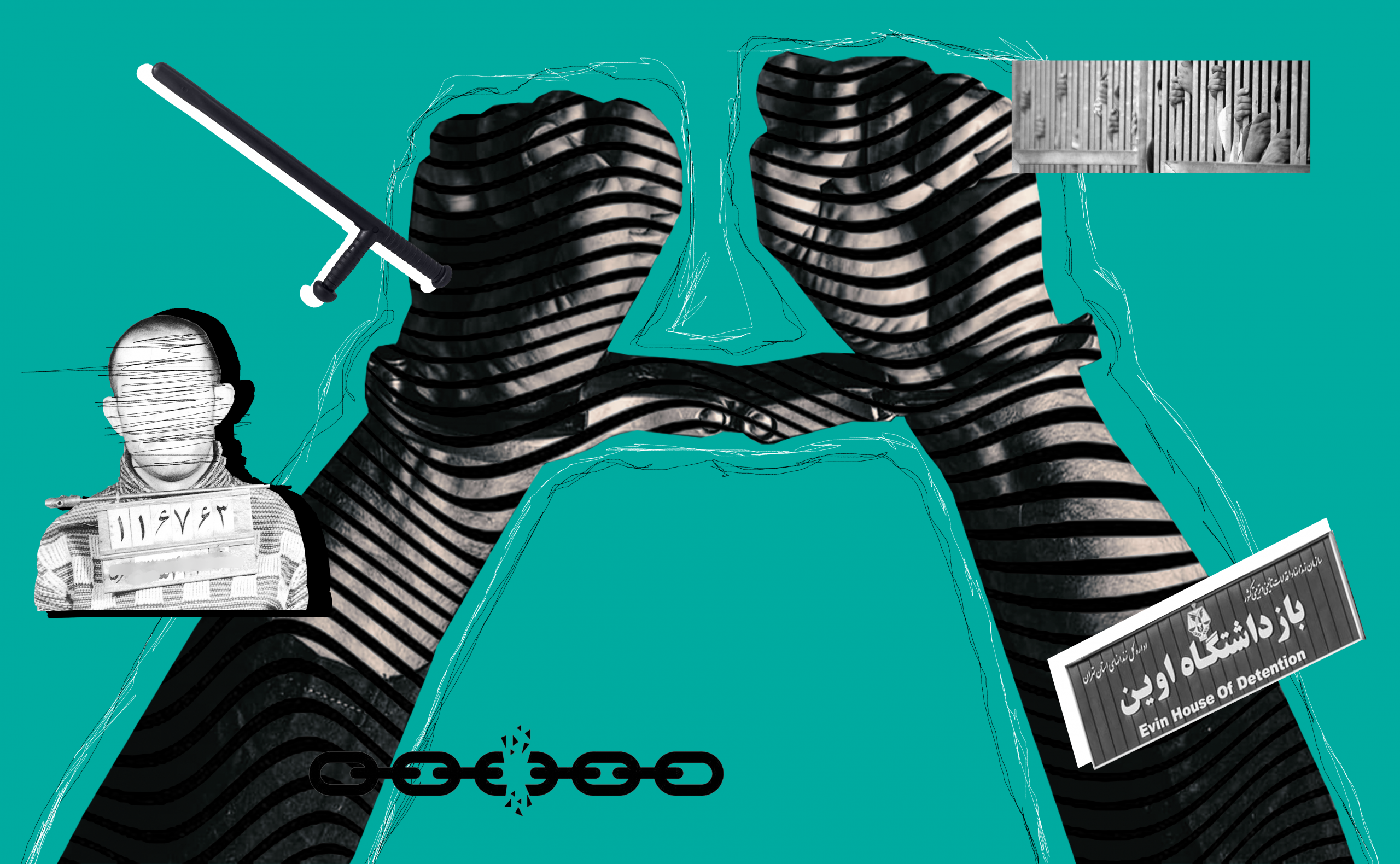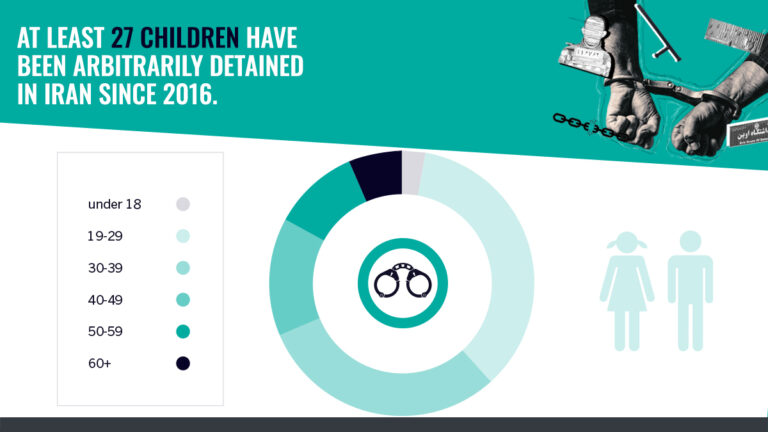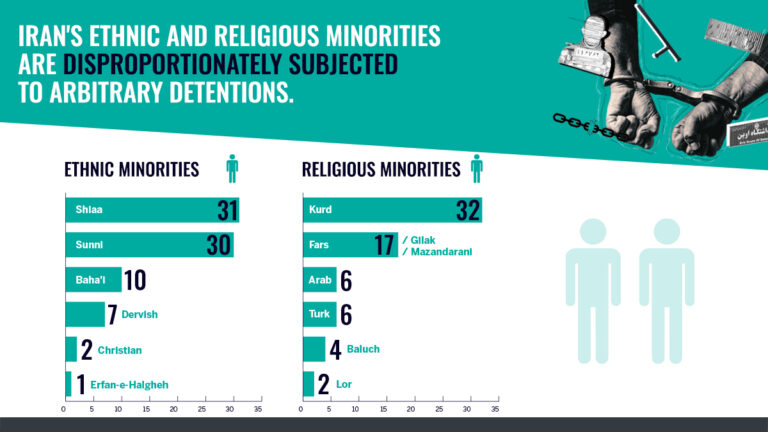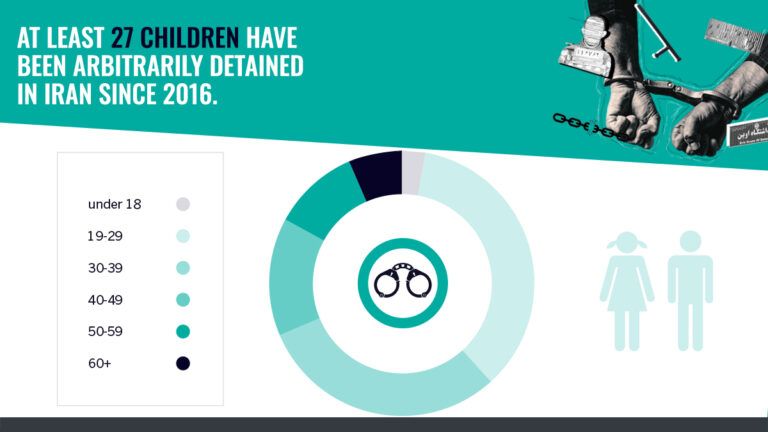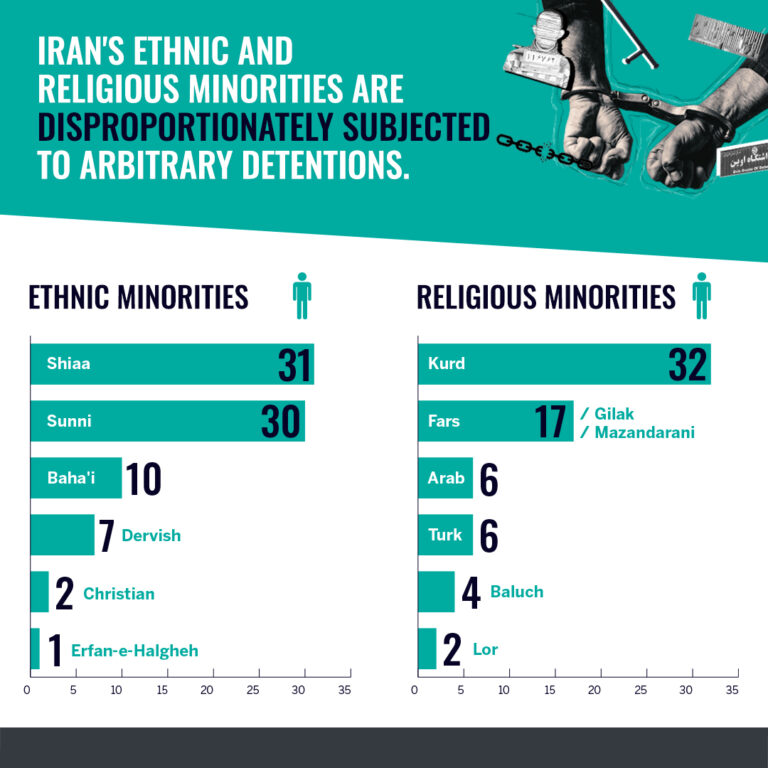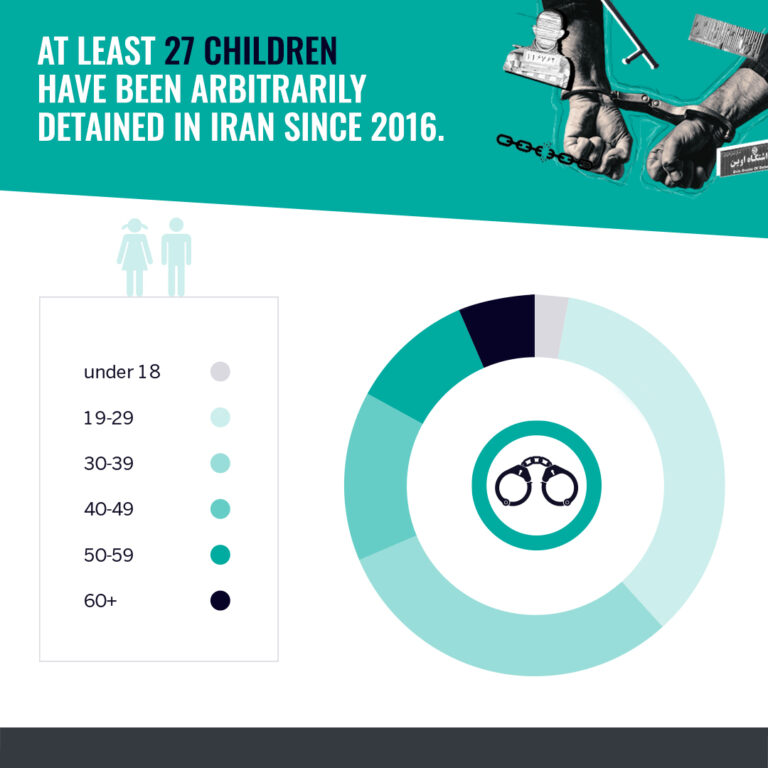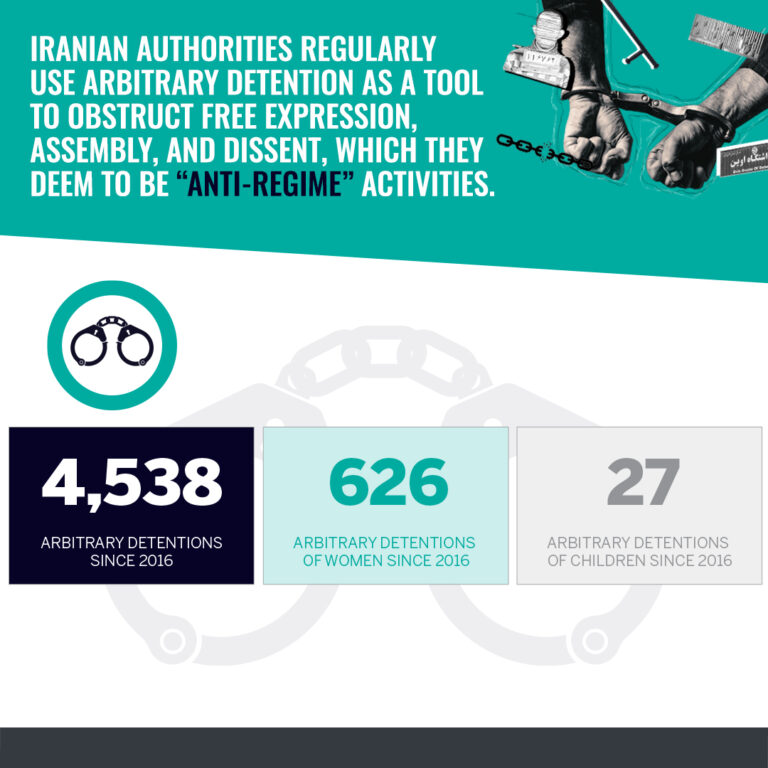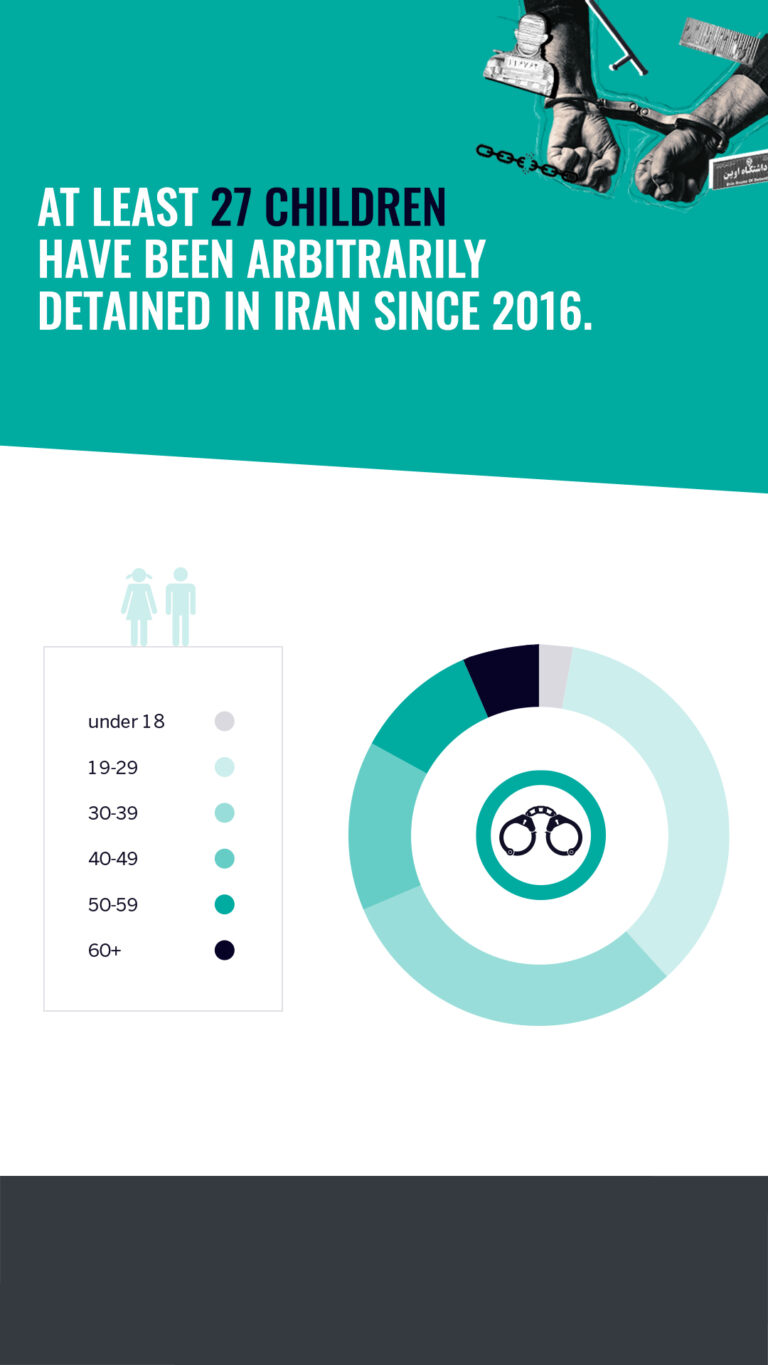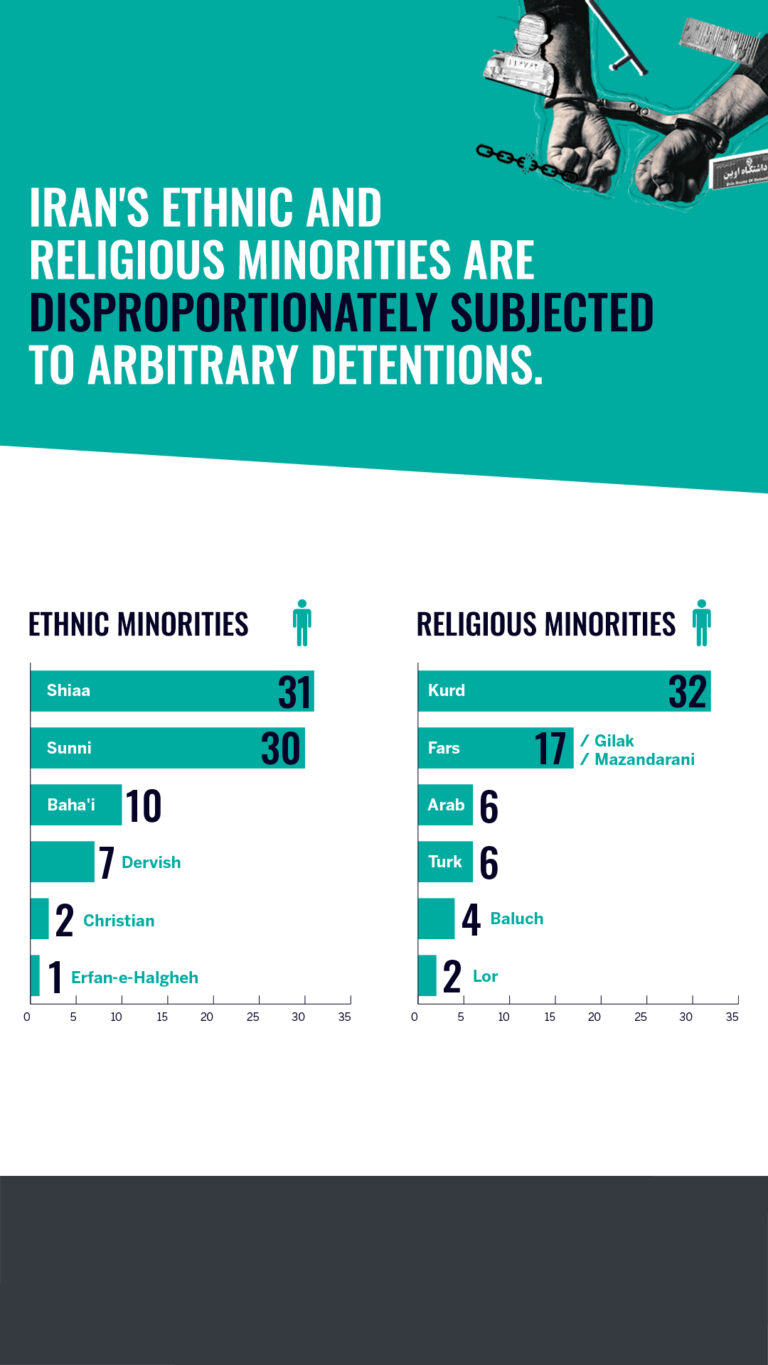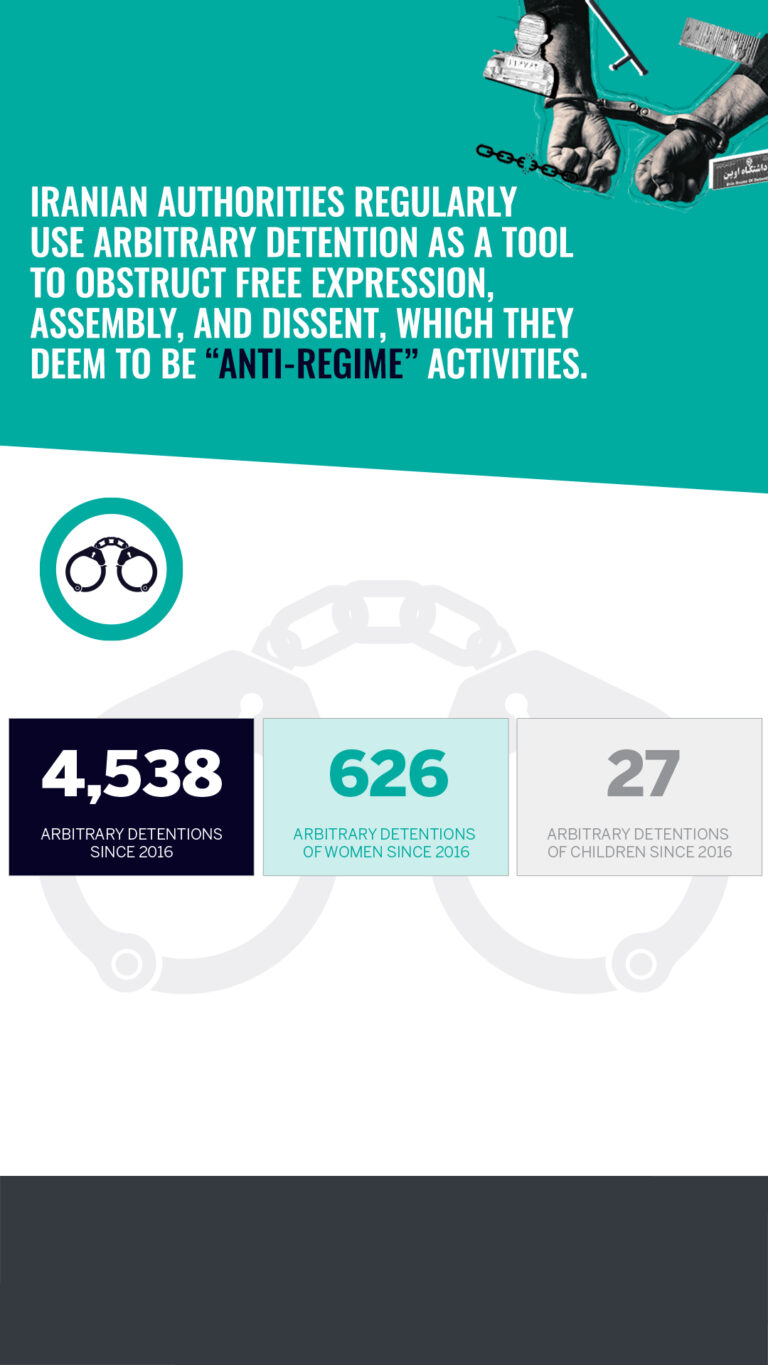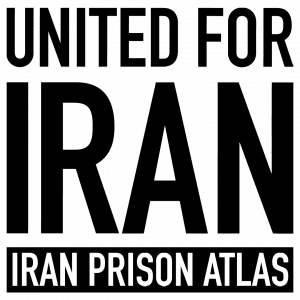Arbitrary Detentions
Iran uses arbitrary detention as a tool to systematically silence human rights defenders and political activists. Hundreds of journalists, lawyers, artists, and activists have been jailed arbitrarily with no end in sight to this practice. Slice and dice the data to understand the many facets of arbitrary detention in Iran.

Arbitrary detention under international law
Arbitrary detention is defined as a deprivation of liberty when imposed arbitrarily. A deprivation of liberty occurs whenever a person is held without his or her free consent. This deprivation is arbitrary if there is no legal basis for the detention, if it is the result of an individual exercising fundamental human rights, if the deprivation is a result of a grave lack of due process, or if the deprivation is based on discrimination. Although the Iranian constitution prohibits arbitrary arrests and detentions, the data show that this practice is not only condoned but also widespread in the country.
Iran’s use of arbitrary detention contravenes international law
Contrary to Iran’s obligations under the International Covenant on Civil and Political Rights (ICCPR), Iranian authorities use arbitrary detention as a tool to obstruct free expression, assembly, and dissent, which they deem to be “anti-regime” activities. Arbitrary arrests often happen during protests, but can also be a targeted tactic against individuals who are engaged in the promotion of human rights, such as journalists, lawyers, human rights defenders, and social or political activists. In recent years, it has also become a common practice for Iran to detain dual nationals (i.e. individuals who are citizens of both Iran and another country) for arbitrary and prolonged detention on politically motivated charges. There is often no legal basis for these arrests and detentions, which has resulted in many advocates likening these arbitrary arrests to hostage-taking.
Iran also regularly deprives individuals who are arrested of due process and fair trials. Plainclothes officers often arrive unannounced at homes or offices where they arrest individuals, conduct raids, and confiscate private documents, passports, computers, electronic media, and other personal items without warrants. Once arrested, individuals often remain in detention facilities without access to legal counsel for long periods without charges or trials, and authorities sometimes prevent them from informing others of their whereabouts for several days. They are often denied access to speak with their families or to have meaningful exchanges with their lawyers.
Spotlight on Kurdish political prisoners
Although the Iranian constitution provides equal rights for “all people of Iran,” in practice ethnic minorities are not treated equally. Kurds in Iran face systematic discrimination and barriers which affect their access to basic services such as housing, political office, employment, and education. Since 2016, the Iranian authorities have become increasingly sensitive to and suspicious of Kurdish political activity. As such, Kurds asserting their ethnic and religious identity, engaging in or associating with civil or political activities, or promoting or perceived to be promoting separatism, face arbitrary arrest and detention. These individuals are often charged with national security-related offences and face lengthy prison sentences, and in some cases the death penalty.
How to engage with the data
The data visualizations on this website are fully interactive. For the most part, you can hover over or click on individual charts to see additional data, details or explanations. You can also use the filter feature in the top right corner to view the charts through different lenses. Moreover, under each chart, there are tips and hints to help you navigate it. Look for a red megaphone icon.
To create a filter, click on the pertinent value within each category. To select multiple values, hold the Control key or the Command key on your keyboard and click on the values of interest. It is possible to combine values from different categories. However, some combinations may be invalid; in that case, the charts will show no values. Finally, some charts are unaffected by filters—for example, the trend chart will always show all years, and gender ratios will be displayed even when filtering by male or female.
To remove a filter, click on the selection again. To clear all filters and return to the original visualization, refresh the page using the refresh button in your browser or the F5 key on your keyboard.
Our Data Partner
Iran Prison Atlas (IPA) is a comprehensive database of political prisoners in Iran, created and administered by United for Iran. IPA collects, verifies, and publishes cases of political prisoners, including information on prisons and prison conditions, as well as the judges and courts that sentence the prisoners. For more information on arbitrary detentions and individual cases that are represented in these visualizations, you can explore the IPA database.
